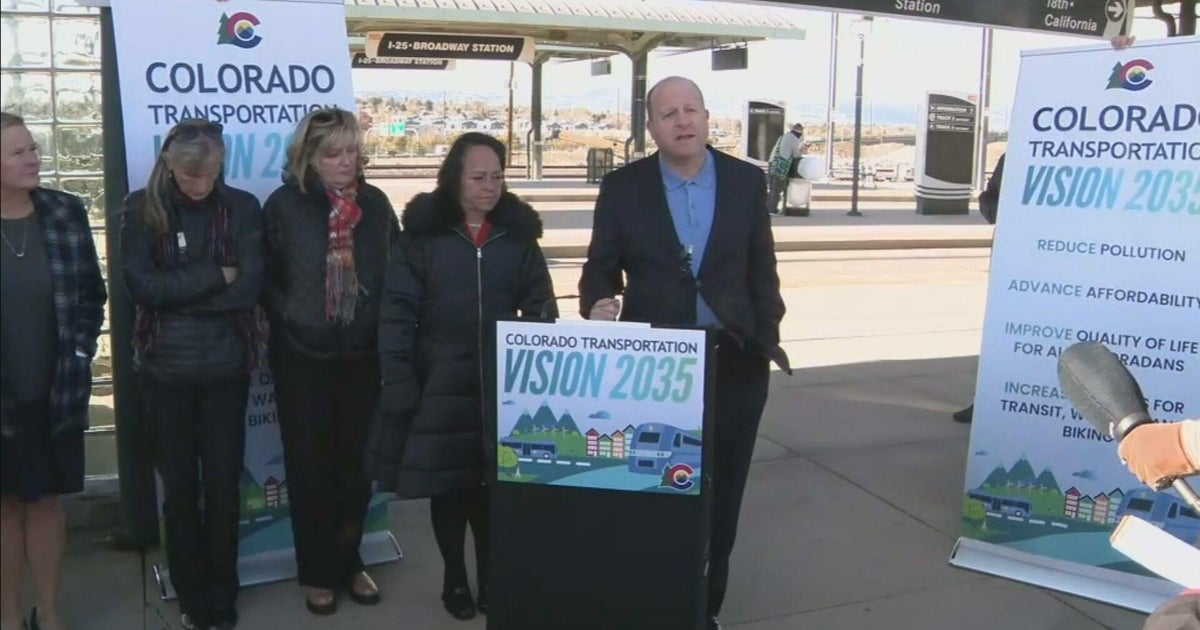"It's time to end the property tax wars": Gov. Jared Polis calls special legislative session to lower property taxes
State lawmakers are headed back to the Capitol to address soaring property taxes.
Gov. Jared Polis has called a special session that will start Aug. 26 and last at least three days.
The session follows a compromise reached between proponents and opponents of two property tax ballot measures, which would provide an estimated $270 million a year in tax relief.
Combined with what lawmakers have already provided, homeowners are looking at a billion dollars a year in total relief.
If the compromise passes, proponents of the ballot measures have agreed to withdraw them.
Polis says Colorado's property tax wars will soon be over.
"Having this fight every six months to a year is not good for the state, and we want to end it," he said.
He added that the compromise -- which caps the amount of revenue local governments can collect each year -- will prevent the kind of spike Coloradans saw this past year.
"We need predictability. We need stability. It has a big enough coalition that it has the staying power I think for the long haul. That's really the goal here," Polis said.
His other goal is to eliminate two ballot measures that he says go too far by capping increases in property tax revenue at 4% a year.
The compromise would instead cap increases at 5.25% for local governments and 6% for schools. The residential rate would drop from 6.7% to at least 6.4%, and the commercial rate would be 25% for all businesses.
"This may not be everything everybody wants, but we want to make sure people are willing to stick with it," said Polis.
Those people include Michael Fields, president of Advance Colorado. The conservative group, along with the business group Colorado Concern, is pushing the ballot measures.
"We have agreed not to bring property tax measures forward in the future, given they stick to this deal—that legislators don't go back and try to raise rates or change things," Fields said.
He was among six people who negotiated the deal. The group included Senators Barb Kirkmeyer and Chris Hansen, Polis' chief of staff Alec Garnett, Budget Director Mark Ferrandino, and Speaker of the House Julie McCluskie.
They hammered out the compromise over the last month, but dozens of groups across the political spectrum support it.
"I do believe this agreement will provide immediate financial relief to families," Kirkmeyer said. "But at the same time, as we're putting this in, the cap ensures that there won't be a spike in the future."
While voters can lift the cap, Fields said the compromise requires local governments to be clear about what they're asking from voters. "It has to say, do you want to opt out of this cap for this district?" Fields said.
While Fields is confident the legislature will pass the compromise, he expects some drama. "I think you're going to see bills on both sides of the aisle come forward. I think the deal is the deal, and I don't think other things are going to pass," he said.
Among the legislation expected is a bill that would refer a ballot measure to voters, preventing any future property tax initiatives.
If it fails, supporters may try to kill the compromise. Local governments also have yet to weigh in on the compromise that impacts them the most.
Sept. 6 is the last date to withdraw measures from the November ballot. Fields says he's prepared to proceed with Initiatives 50 and 108 if the compromise doesn't pass.






